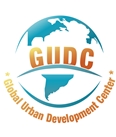GUDC Initiative Act 2 - Cities and territories in transformation
Implementation of the programme "Cities and Territories in Transformations - Act 2 "
The mobilization of collective intelligence displayed in a collaborative way, will help us to align our activities with the challenges brought by major mutations: transitions that are either demographic, social, ecological, technological or territorial and operational. This focus offers to our members, and even beyond them, a mass of themes for reflections and exchanges: health and urbanism, urban intelligences, urbanization, environment and energy transition, mass production of affordable housing, urban renewal and districts revitalization, city and migrants… Furthermore, we still assist local leaders in coproducing and evaluating their development project. This program is led and implemented through several communities of competences where members can share their experiences, develop ideas and build new knowledge on a continual basis.
With "Cities and Territories in Transformation", our report of Act 1 of our Initiative for Habitat III, GUDC identified the changes to come, all of which are unavoidable challenges. The report recognized areas for action on key issues of the city of tomorrow. See GUDC Initiative. |  |
Rallying the collective intelligence
The complexity of urban and environmental challenges of the coming decades is such that the current technical solutions remain inoperative unless there is a change in the way urban policies are conducted and new methods applied. Our belief is that medium and long-term improvement relies on the collective intelligence of the inhabitants, and other local actors, supported by international experience applied to local development projects with high economic and social value.
Overcoming conventional approach
It is the production of customized solutions developed in cooperation that will allow overcoming conventional development policies with their standardized and irrelevant approaches. The value of innovative methods is a function of forces in actions and of individual settings in each territorial system. There is no pre-existing model for the city of tomorrow.
The assessment of urban projects collaboratively
The deployment of the collective intelligence is carried in close partnership through "peer-to-peer" training and backing, where international development professionals are helping territorial actors to initiate or assess their urban projects at all stages of completion: design, implementation, management and communication.
The faster transfer of experience
The power of knowledge exchange and transfer of experiences of this operating mode introduced by GUDC for over 25 years accelerate the identification of innovative projects in key sectors ensuring social, economic, and environmental protection as well as public acceptance.
Programme in 4 phases
Phase 1: methodological construction - September 2017 / January 2018
SPOTLab “territorial mut@tions” in partnership with SNCF
It is about elaborating, during 4 workshops of around thirty people, a methodological framework to present in a more innovative way the questions that the city stakeholders ask themselves: what uncertainties, what risks, what future challenges? Then to go further, collectively, in the formulation of their vision of the city by identifying contextualized situations before formulating proposals, the operational bricks, which will be tested in situ.
Phase 2: Presentation of project lineaments at the 9th World Urban Forum in Kuala Lumpur - February 2018
Programmed interventions based on the first achievements of phase 1
Phase 3: In situ interventions - March 2018 / December 2019
The Peer-to-Peer review is one of many co-production tools to identify the process of urban innovation through a multidisciplinary approach centred on the inhabitant; braking the barriers between professional expertise, bringing dynamism and challenges. The behaviours and skills highlighted in the approach are at the heart of creativity: being in tune with the people and the culture of the territory, having the experience and the wisdom to identify the real problems, to overcome the too frequent defiance between professionals and have the ability to imagine and implement breakthrough solutions. The participants of the exercise coming from various origins - elected officials, inhabitants, technicians, users, professionals, communities, and researchers - are put in condition to imagine collaborative strategies that match complex urban challenges. The participants imagine operational processes from the proposals formulated by the community - plans, development plans, projects by promoters or citizens collectives, etc. They must find a common language with the local actors, indicate the trajectories of an optimized, realistic and sustainable development, and identify the conditions of realization in a complex social fabric.
Phase 4: publication of successive summaries: 1st half of 2020
Closing seminar, various publications, videos ... The conclusions of the program will be presented at the 10th WUF.
Communities of Competence
The added value of these working groups - clusters - is in the density of exchanges between members, their ability to share specific problems, and "test" new solutions in response to the challenges of the future of urban development. The expected output of these clusters is the production of innovation for tomorrow's urban development, to be put into perspective and validated in the course of the activities that can be of different nature.
Contribute to advancing the debate on the future of urban development by joining a Community!
| Transitions et disruptions | Implementing tools | |
|---|---|---|
| Demography | Tomorrow housing Migrations, health and aging | Coproduce the city, evolutions of social landlord, real estate industry and sustainable development Urban form quality and evolution Urbanisation new reading grids The city for all, participation |
| Ecology | Energy, water and air Mobility Recycling, resilience, biodiversity | |
| Technology | Innovation in urban services New urban economy Smart territories / Smart Cities | Soft power The evolutions of services : business, health, tourism Innovation in building and construction |
| Territorial and governance | Metropolization Small and medium towns Rurality | Funding urban development New "New tows" Solidarity and reciprocity Citizenship and responsibility |



